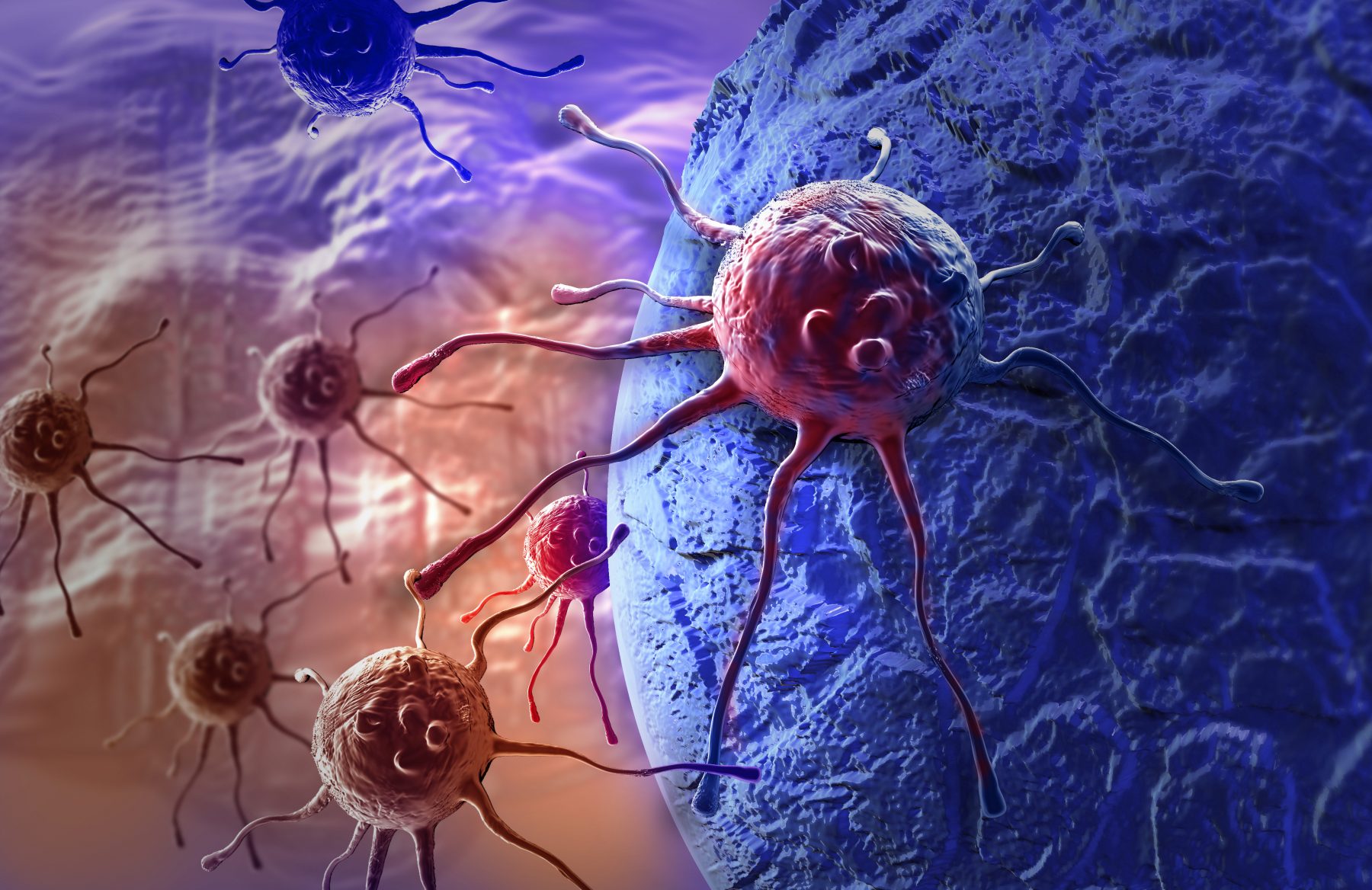
EP 51: What Is Cancer?
1 out of 2 men & 1 out of 3 women will suffer from cancer at some point in their life.
We don’t say these statistics to scare you but to help understand the magnitude of this disease.
In this episode, we discuss:
- What causes cancer.
- The different types of cancer.
- The signs & symptoms of it.
Cancer is a disease caused when cells divide uncontrollably and spread into surrounding tissues1. Cancer refers to any one of a large number of diseases characterized by the development of abnormal cells that divide uncontrollably and have the ability to infiltrate and destroy normal body tissue2. Cancer can start almost anywhere in the human body, which is made up of trillions of cells1. Cancer is caused by changes to DNA. Most cancer-causing DNA changes occur in sections of DNA called genes. These changes are also called genetic changes. A DNA change can cause genes involved in normal cell growth to become oncogenes1.
According to the World Health Organization (WHO), lung, prostate, colorectal, stomach and liver cancer are the most common types of cancer in men, while breast, colorectal, lung, cervical and thyroid cancer are the most common among women1. The National Cancer Institute (NCI) also lists some of the most common cancer types such as breast cancer, cervical cancer, oral cancer, and colorectal cancer2. The NCI also provides a list of common cancers such as breast cancer, prostate cancer and lung cancer3.
Cancer signs and symptoms vary depending on what part of the body is affected. Some general signs and symptoms associated with cancer include 12345:
- Fatigue
- Lump or area of thickening that can be felt under the skin
- Weight changes, including unintended loss or gain
- Skin changes, such as yellowing, darkening or redness of the skin, sores that won’t heal, or changes to existing moles
- Changes in bowel or bladder habits
- Persistent coughing or hoarseness
- Difficulty swallowing
- Persistent indigestion or discomfort after eating
- Persistent, unexplained muscle or joint pain
- Persistent, unexplained fevers or night sweats
It’s important to note that having any of these symptoms does not necessarily mean you have cancer. Many other things can cause these symptoms as well. If you have any of these symptoms and they last for a long time or get worse, it’s important to see a doctor so they can find out what’s causing them 2.
